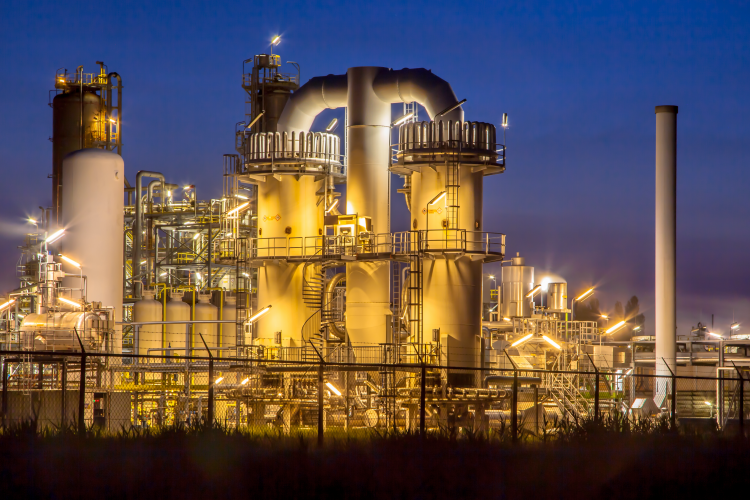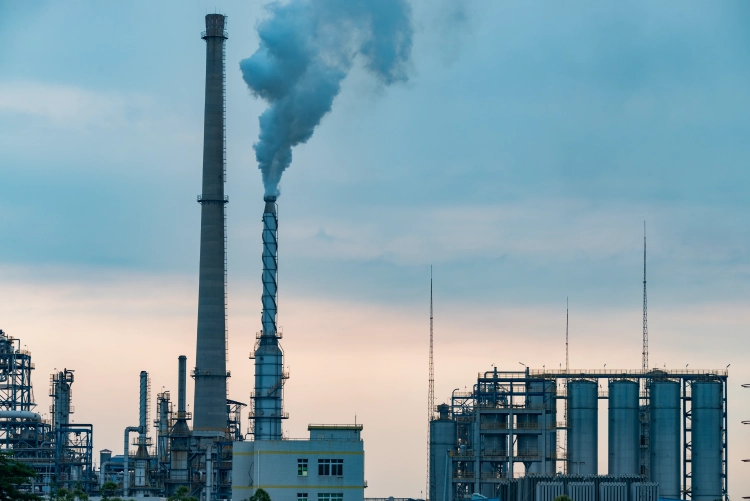What solutions can Tecnium provide to the chemical and pharmaceutical industries for gas washing?
At Tecnium, we specialize in developing advanced solutions for the chemical and pharmaceutical industries.
Our wide range of industrial solutions covers various applications for this specific industry, providing customized and high-quality solutions that meet the highest standards of safety and efficiency in all gas washing processes.
Gas Washing and Emission Treatment in a Chemical or Pharmaceutical Plant
The chemical and pharmaceutical industries generate various gas effluents due to their manufacturing processes. The capture and treatment of these gases are part of our recognized expertise and knowledge.
We design, manufacture, and supply a wide range of equipment that uses different technologies depending on the nature of the gases to be treated.
Commonly used technologies include chemical washing, biofiltration, activated carbon, and thermal oxidation. The selection of the most appropriate technology depends on the specific needs of each application.



Absorption: TECNIUM-CHEM
For example, chemical washing is typically used to absorb acidic or alkaline gases using suitable reagents, applied within washing towers or scrubbers. Under this technology, Tecnium supplies multiple systems for gas washing and odour control using water or chemical reagents, employing washing towers, venturis, and cyclones.
On the other hand, TECNIUM-CHEM has various applications and is commonly found in wastewater treatment plants, composting plants, and within the food, chemical, or pharmaceutical industries.
Biofiltration: TECNIUM-BIO
Biofiltration is applied in cases of gases contaminated with organic and inorganic compounds and with high flow rates, using special biomedia of organic or inorganic nature, eliminating the need for reagents. Activated carbon is typically used for the adsorption of VOC-type contaminants, passing the gas through activated carbon beds.
The main application of biofiltration today is within the industry, where it offers a solution to the problem of pollution from biodegradable gases. Among its advantages, this technology ensures high performance with low operating expenses, and it does not generate contaminating effluents that are often difficult to eliminate.
Thermal Oxidation: TECNIUM-RTO
Thermal oxidation is typically used to treat gases with high concentrations of VOCs that have little or no solubility in water. The process itself involves the incineration oxidation of the contaminating emissions in furnaces operating at temperatures above 700 °C for regenerative thermal oxidation or close to 400 °C for oxidation with catalysts.
This offers clear advantages such as ease of use, being a fully automated process that does not generate waste and allows for a wide operating range. Current applications of thermal oxidation include paper and textile printing, varnish manufacturing, and surface treatment, among others.
Activated Carbon Adsorption: TECNIUM-CARB
In this case, our focus is on the use of porous filtering media, including adsorption using impregnated or non-impregnated activated carbons, catalytic carbons, and water or thermally regenerate carbons.
Typically, industrial gases contain contaminants with very low perception thresholds, such as mercaptans, volatile organic compounds (VOCs), or hydrogen sulphide (H2S). This is where granular carbon plays a fundamental role, as its porosity and intermolecular forces allow for the adsorption and fixation of these contaminants on its surface.
Proper selection of the carbon material based on the contaminants present, as well as correct filter sizing, considering materials, dimensions, and other relevant aspects, is crucial.
The advantages of this technology are diverse. It offers easy installation, facilitating implementation in different environments. Additionally, it has low implementation and maintenance expenses, including regeneration, renewal, and energy consumption. All of this translates into a reduced space requirement for installation.
This technology finds applications in various sectors. In wastewater treatment plants, it is used in pumping wells, thickeners, pretreatment, and dehydration processes. In the food industry, it is particularly useful in treating gas emissions generated during roasting, cooking, and fat treatment processes.
It is also employed in the chemical industry for the removal of volatile organic compounds (VOCs), gases from reactor vents, and the elimination of heavy metals.

At Tecnium, we take pride in being a reliable and specialized partner in the development of advanced solutions for the chemical and pharmaceutical industry. Our approach is based on understanding the specific needs of our clients and providing customized solutions that meet their quality requirements. We work closely with our clients to ensure that our solutions fit seamlessly into their processes and business objectives.
Trust Tecnium as your strategic partner and discover how our solutions can enhance the efficiency, safety, and profitability of your company in the chemical and pharmaceutical industry. Do not hesitate to contact our sales department for more detailed information about our gas washing solutions and technologies. You’re in good hands!
